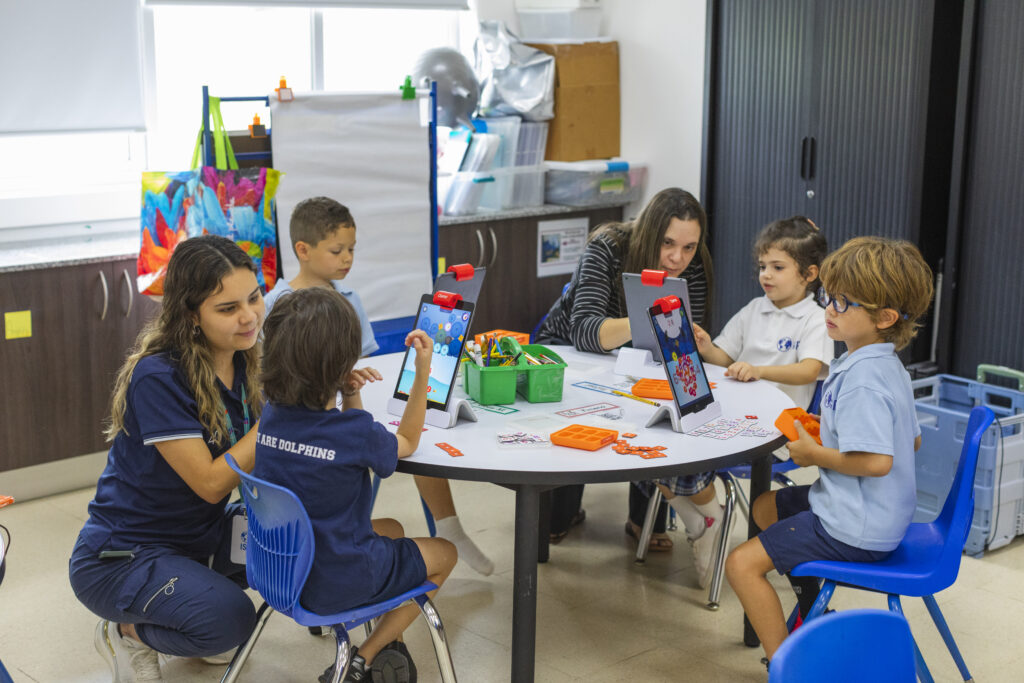
The mission of the International School of Panama is to inspire and challenge every learner to be curious, independent, and compassionate citizens of the world. As a non-profit school, ISP serves families from 50 different countries and who speak 24 different languages.
At ISP, all students are learning one or more academic languages, whether that be English, Spanish, or one of the many languages students speak at home. In order to support linguistic development through academic content, ISP has transitioned to a co-teaching model at the elementary and middle school levels. This means students of all language proficiencies are learning from one another in the same classroom with the support of both a language specialist and a content teacher. Additionally, teachers use a variety of small group models and principles of universal design for learning to scaffold academic content as multilingual learners build their language skills. There is time built into the teaching schedule each week for grade level or content area teams to meet together with specialists, review data and implement targeted interventions and language acquisition and literacy strategies.
Recently, ISP rewrote their language policy to improve community understanding and practices around the role language plays in identity, belonging and the well-being of learners. Throughout this process, they have been active participants in the MLRC Language Policy Working Group. Currently, the school is exploring how translanguaging strategies can support multilingual learners to access all of their linguistic tools and strengths to learn and demonstrate their learning.
ISP joined the MLRC in order to make connections with other schools who were researching similar questions about making learning accessible for all students, co-teaching practices and how to reframe learning from a monolingual to a multilingual lens. In addition, school leadership and faculty were seeking research and best practices specific to international schools regarding academic content and language integration and the role of language in identity and positive classroom culture. The MLRC provides the opportunity to collaborate regularly with other schools through action research projects, in designing or updating language policies, and accessing curated research and resources for multilingual learners. By hosting the upcoming MLRC Research Symposium, faculty and leaders from ISP are excited to partner with and learn from other international schools in the region and around the world who are exploring how to best serve multilingual students.
To learn more and register to attend an upcoming MLRC Research Symposium, visit: https://mlrc.wisc.edu/research-symposia/

